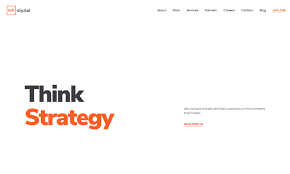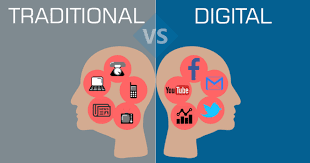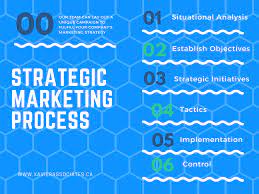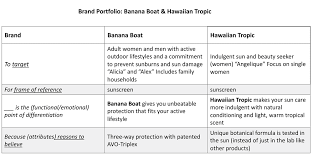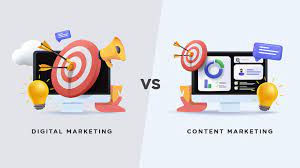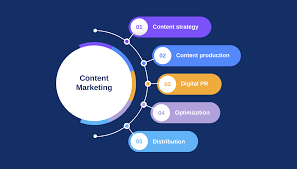Unlocking Success: The Power of B2B Content Marketing Consultants
In today’s competitive business landscape, effective marketing is crucial for success. For B2B companies, content marketing has emerged as a powerful strategy to engage and convert potential clients. However, navigating the complexities of B2B content marketing requires expertise and a deep understanding of the industry. This is where a B2B content marketing consultant becomes an invaluable asset.
A B2B content marketing consultant is a seasoned professional who specializes in developing and implementing strategic content plans tailored specifically to the needs of B2B businesses. They possess a wealth of knowledge about industry trends, buyer personas, and the unique challenges that B2B companies face when it comes to reaching their target audience.
One of the key advantages of working with a B2B content marketing consultant is their ability to craft compelling and relevant content that resonates with the intended audience. They conduct thorough research to understand the pain points, motivations, and goals of potential clients, enabling them to create content that addresses these needs effectively.
Moreover, a B2B content marketing consultant understands how to leverage various channels and platforms to distribute content efficiently. From social media platforms like LinkedIn and Twitter to industry-specific publications and blogs, they have the expertise to identify the most appropriate channels for reaching the target audience. By strategically placing content where it will have maximum impact, they help businesses increase their visibility and generate quality leads.
Another benefit of engaging a B2B content marketing consultant is their ability to optimize search engine rankings through SEO (Search Engine Optimization). They are well-versed in keyword research, on-page optimization techniques, and link-building strategies that can improve a company’s online visibility. By implementing SEO best practices into their content creation process, these consultants ensure that businesses rank higher in search engine results pages (SERPs), driving organic traffic and increasing brand exposure.
Furthermore, B2B content marketing consultants understand how to measure and analyze the effectiveness of content marketing campaigns. They utilize analytics tools to track key metrics such as website traffic, conversion rates, and engagement levels. This data-driven approach enables them to identify areas of improvement and make data-backed recommendations for optimizing future campaigns.
Collaborating with a B2B content marketing consultant is an investment in long-term success. Their expertise and industry knowledge can help businesses establish thought leadership, build brand reputation, and ultimately drive revenue growth. By outsourcing this critical aspect of marketing to a professional consultant, companies can focus on their core competencies while reaping the benefits of a well-executed content strategy.
In conclusion, B2B content marketing consultants are instrumental in unlocking the potential of businesses in the digital age. Their ability to create targeted, engaging content combined with their knowledge of distribution channels and SEO optimization can elevate a company’s visibility, credibility, and lead generation efforts. By harnessing their expertise, B2B companies can position themselves as industry leaders and stay ahead of the competition.
8 Benefits of Hiring a B2B Content Marketing Consultant in the UK
- Increased brand visibility
- Improved customer engagement
- Increased website traffic
- Cost-effective solutions
- Improved search engine rankings
- Wider reach
- Increased customer loyalty
- Expertise & knowledge
Challenges of B2B Content Marketing Consulting in the UK
- Costly
- Time-consuming
- Lack of familiarity
- Limited resources
- Difficulty measuring ROI
- Not always up-to-date
Increased brand visibility
Increased brand visibility: A B2B content marketing consultant can help promote your business and get it noticed by potential customers.
In today’s crowded marketplace, standing out from the competition is crucial for any B2B company. This is where a B2B content marketing consultant can make a significant impact. By developing and implementing strategic content marketing plans, they can increase your brand’s visibility and ensure that it gets noticed by the right audience.
One of the key advantages of working with a B2B content marketing consultant is their ability to craft compelling content that resonates with your target customers. Through in-depth research and understanding of your industry, they can create valuable and informative content that addresses the pain points and challenges faced by your potential clients. By providing solutions and insights through quality content, they position your brand as an authority in the field, increasing its visibility among potential customers.
Furthermore, a B2B content marketing consultant understands how to leverage various channels and platforms to distribute your content effectively. They have expertise in identifying the most appropriate channels for reaching your target audience, whether it be through social media platforms like LinkedIn or industry-specific publications. By strategically placing your content where it will have maximum impact, they ensure that your brand gets noticed by potential customers who are actively seeking solutions in your industry.
Additionally, a B2B content marketing consultant can optimize your online presence through SEO techniques. By conducting thorough keyword research and implementing on-page optimization strategies, they improve your website’s search engine rankings. This means that when potential customers search for relevant keywords related to your business, you are more likely to appear higher in search engine results pages (SERPs). This increased visibility not only drives organic traffic to your website but also enhances brand recognition and trust among potential customers.
Collaborating with a B2B content marketing consultant is an investment in increasing brand visibility and exposure. Their expertise in crafting engaging content combined with their knowledge of distribution channels and SEO optimization can help your business reach a wider audience and get noticed by potential customers. By effectively promoting your brand through strategic content marketing, they position you as a trusted industry leader, increasing your chances of attracting new clients and driving business growth.
In conclusion, a B2B content marketing consultant plays a vital role in increasing brand visibility. Their ability to create targeted content and leverage various distribution channels ensures that your business gets noticed by potential customers. By collaborating with these professionals, you can enhance your brand’s visibility, credibility, and ultimately drive business success in today’s competitive marketplace.
Improved customer engagement
Enhancing Customer Engagement: The Key Advantage of a B2B Content Marketing Consultant
In the ever-evolving world of business, customer engagement holds the key to building strong relationships and fostering brand loyalty. For B2B companies, this engagement is crucial for sustained success. This is where a B2B content marketing consultant proves to be an invaluable asset, as they excel in creating quality content that captivates and retains customers.
One of the primary benefits of working with a B2B content marketing consultant is their ability to craft compelling and relevant content that resonates with the target audience. By conducting thorough research and understanding the pain points, motivations, and goals of potential clients, these consultants can create content that addresses their needs effectively. This tailored approach ensures that customers feel understood and valued by the company.
Quality content not only attracts customers but also keeps them coming back for more. A B2B content marketing consultant understands how to create engaging articles, blog posts, whitepapers, videos, and other forms of content that provide value to customers. By offering insightful information, expert advice, or solutions to common challenges faced by clients in the industry, these consultants establish themselves as trusted sources of knowledge.
Moreover, a B2B content marketing consultant knows how to leverage different channels and platforms to distribute this valuable content effectively. They are well-versed in social media strategies and understand which platforms are most frequented by the target audience. By disseminating content through channels such as LinkedIn or industry-specific forums, they can reach potential clients where they are most active.
By consistently delivering high-quality content that educates and engages customers, businesses can foster stronger connections with their target audience. Engaged customers are more likely to interact with a company’s brand through comments on blog posts or social media platforms. This interaction creates a sense of community and encourages further engagement among customers themselves.
Another advantage of improved customer engagement is increased brand loyalty. When customers feel connected to a brand and perceive value in the content provided, they are more likely to remain loyal and continue doing business with that company. This loyalty translates into repeat sales, positive word-of-mouth recommendations, and even potential upselling or cross-selling opportunities.
In conclusion, a B2B content marketing consultant brings the expertise needed to enhance customer engagement through quality content creation. By understanding the target audience’s needs, distributing content through relevant channels, and consistently delivering valuable information, these consultants can help businesses build stronger relationships with their customers. Improved engagement leads to increased brand loyalty, repeat business, and advocacy – all vital components for long-term success in the competitive B2B landscape.
Increased website traffic
Driving Success: How B2B Content Marketing Consultants Increase Website Traffic
In the digital age, a strong online presence is vital for businesses looking to thrive in the B2B market. One of the key advantages of working with a B2B content marketing consultant is their ability to boost website traffic, ultimately increasing the chances of turning leads into valuable sales.
Content marketing, when executed strategically, has the power to attract and engage potential clients. By creating valuable and relevant content that addresses the pain points and challenges faced by their target audience, B2B content marketing consultants can position businesses as trusted industry experts. This expertise builds credibility and encourages visitors to explore further, leading them to visit the company’s website for more information.
With their deep understanding of industry trends and buyer personas, B2B content marketing consultants craft compelling content that resonates with the intended audience. Whether it’s informative blog posts, engaging videos, or insightful whitepapers, they create content that educates, entertains, and adds value. This not only attracts potential clients but also encourages them to share this valuable content through social media channels and other platforms.
As more people discover and share this content, it generates buzz around the brand and drives organic traffic to the company’s website. The increased visibility helps businesses reach a wider audience who may not have been aware of their products or services otherwise. This influx of targeted traffic presents an opportunity for lead generation as visitors are more likely to convert into potential customers when they find relevant and engaging content on a company’s website.
Moreover, B2B content marketing consultants understand how to optimize search engine rankings through SEO techniques. By incorporating carefully researched keywords into their content creation process and implementing on-page optimization strategies, they improve a company’s visibility in search engine results pages (SERPs). This means that when potential clients search for relevant topics or solutions related to a business’s offerings, they are more likely to come across its website, further increasing website traffic.
Increased website traffic not only boosts brand exposure but also provides businesses with valuable data. B2B content marketing consultants utilize analytics tools to track website metrics such as traffic sources, visitor behavior, and conversion rates. This data-driven approach enables them to gain insights into what content resonates best with the target audience and make informed decisions on future content strategies. By continually analyzing and optimizing their approach, B2B companies can drive even more targeted traffic to their website.
In conclusion, working with a B2B content marketing consultant offers businesses the opportunity to increase website traffic and enhance lead generation efforts. Through strategic content creation, optimization techniques, and data analysis, these consultants attract potential clients to a company’s website and create valuable opportunities for sales conversions. By harnessing the power of content marketing, businesses can elevate their online presence and achieve long-term success in the competitive B2B landscape.
Cost-effective solutions
Cost-effective Solutions: The Advantage of B2B Content Marketing Consultants
In today’s competitive business landscape, every penny spent on marketing counts. For B2B companies looking to maximize their return on investment, content marketing emerges as a cost-effective solution. Compared to traditional forms of advertising such as TV or radio ads, content marketing offers an affordable way to promote your business. This is where the expertise of a B2B content marketing consultant becomes invaluable.
A B2B content marketing consultant understands the power of creating and distributing valuable content that resonates with your target audience. By focusing on crafting engaging blog posts, informative articles, captivating videos, and other relevant content, they can help businesses establish thought leadership and build brand reputation without breaking the bank.
Unlike expensive TV or radio ads that often come with high production costs and airtime fees, content marketing allows for flexibility within any budget. B2B content marketing consultants are skilled at creating compelling content that can be distributed across various platforms at a fraction of the cost. From social media channels to industry-specific publications and websites, they know how to leverage cost-effective distribution channels to reach the right audience.
Moreover, a B2B content marketing consultant understands the importance of organic reach through search engine optimization (SEO). By implementing SEO best practices into their content creation process, they ensure that businesses rank higher in search engine results pages (SERPs). This means that potential clients can discover your company organically without the need for costly advertising campaigns.
Additionally, with the help of a B2B content marketing consultant, businesses can achieve long-term results at a lower cost compared to traditional advertising methods. While TV or radio ads may provide short-term visibility and immediate impact, their effects tend to fade quickly once the ad stops running. On the other hand, well-crafted and strategically distributed content continues to attract potential clients over time, resulting in sustained brand exposure and lead generation.
By working with a B2B content marketing consultant, businesses can allocate their marketing budget more effectively. Rather than spending large sums on short-lived advertising campaigns, they can invest in creating high-quality, evergreen content that continues to deliver value long after its initial publication. This cost-effective approach ensures a better return on investment and allows businesses to focus on building meaningful connections with their target audience.
In conclusion, the cost-effectiveness of content marketing is a significant advantage offered by B2B content marketing consultants. By harnessing their expertise in creating valuable content and leveraging affordable distribution channels, businesses can promote their brand and generate leads without breaking the bank. This budget-friendly approach, combined with the long-term impact of content marketing, makes it an attractive option for B2B companies looking to maximize their marketing efforts while minimizing costs.
Improved search engine rankings
Improved Search Engine Rankings: Boosting Your Online Visibility with a B2B Content Marketing Consultant
In today’s digital age, having a strong online presence is essential for the success of any business. When it comes to B2B marketing, one of the key advantages of working with a content marketing consultant is their ability to improve search engine rankings through quality content creation.
Search Engine Optimization (SEO) plays a crucial role in determining how easily potential customers can find your website online. A B2B content marketing consultant understands the intricacies of SEO and knows how to optimize your content to rank higher in search engine results pages (SERPs).
By conducting thorough keyword research, these consultants identify the terms and phrases that potential customers are using when searching for products or services in your industry. They then strategically incorporate these keywords into your website’s content, including blog posts, articles, and landing pages. This helps search engines recognize the relevance and value of your content when matching it with user queries.
But it’s not just about stuffing keywords into your content. A B2B content marketing consultant focuses on creating high-quality, engaging, and informative content that resonates with both search engines and human readers. They understand that search engines prioritize websites that provide valuable information to users.
With their expertise, consultants can help you create compelling blog posts, whitepapers, case studies, and other types of content that address the pain points and challenges faced by your target audience. By consistently delivering valuable insights and solutions through your content, you establish yourself as an authority in your industry while improving your search engine rankings.
Higher search engine rankings lead to increased organic traffic to your website. When potential customers find you easily through search engines like Google or Bing, they are more likely to visit your site and explore what you have to offer. This organic traffic brings in qualified leads who are actively seeking solutions related to their needs or challenges.
By leveraging the power of a B2B content marketing consultant, you can improve your website’s visibility, attract more organic traffic, and ultimately increase your chances of converting visitors into customers. This improved search engine ranking not only enhances your online presence but also boosts your brand’s credibility and trustworthiness.
In conclusion, partnering with a B2B content marketing consultant can significantly improve your search engine rankings. Their expertise in SEO and content creation ensures that your website is optimized to appear prominently in search results. By consistently delivering high-quality, relevant content, you can attract more organic traffic and connect with potential customers who are actively seeking solutions in your industry. Embrace the power of a B2B content marketing consultant and unlock the full potential of your online visibility.
Wider reach
Expanding Horizons: The Wider Reach of B2B Content Marketing Consultants
In the ever-evolving landscape of business-to-business (B2B) marketing, reaching a wider audience is essential for growth and success. Traditional marketing methods often have limited reach, making it challenging to tap into new markets efficiently. However, with the expertise of a B2B content marketing consultant, businesses can unlock a world of possibilities and access new markets quickly and cost-effectively.
One significant advantage of working with a B2B content marketing consultant is their ability to create targeted campaigns that reach a wider audience. These consultants possess in-depth knowledge about different industries, buyer personas, and market trends. By leveraging this expertise, they can craft compelling content that resonates with diverse audiences across various sectors.
Unlike traditional methods that rely on generic messaging or broad advertising campaigns, B2B content marketing consultants understand the importance of tailoring content to specific demographics. They conduct thorough research to identify the pain points, motivations, and needs of potential clients in different markets. Armed with this information, they create engaging content that addresses these unique requirements.
Moreover, B2B content marketing consultants are well-versed in utilizing various digital channels to maximize reach. From social media platforms like LinkedIn and Twitter to industry-specific forums and online communities, they know where and how to distribute content for optimal visibility. By strategically placing content in front of the right audiences, businesses can expand their reach far beyond what traditional methods would allow.
The wider reach offered by B2B content marketing consultants also brings significant cost advantages. Traditional marketing methods often involve substantial investments in print advertisements or physical events that may have limited reach. In contrast, digital content marketing campaigns are highly scalable and cost-effective. With targeted online distribution channels and well-crafted content, businesses can achieve greater exposure at a fraction of the cost compared to traditional approaches.
Additionally, B2B content marketing consultants understand the importance of search engine optimization (SEO) in expanding reach. By incorporating SEO techniques into content creation, they can improve a company’s visibility in search engine results. This means that potential clients actively searching for relevant solutions or services will be more likely to discover and engage with a business’s content, further widening the reach and attracting new prospects.
In conclusion, the wider reach provided by B2B content marketing consultants is a game-changer for businesses seeking to access new markets quickly and cost-effectively. Their ability to create targeted campaigns, leverage digital channels, and optimize content for search engines opens doors to untapped audiences. By expanding horizons through strategic content marketing, businesses can accelerate growth, increase brand exposure, and seize opportunities in previously unexplored markets.
Increased customer loyalty
Building Stronger Bonds: How B2B Content Marketing Consultants Foster Customer Loyalty
In the competitive world of B2B marketing, customer loyalty is a precious commodity. It’s not just about acquiring new customers; it’s about nurturing existing relationships and fostering loyalty that can lead to repeat business and long-term success. This is where the expertise of a B2B content marketing consultant comes into play.
One significant advantage of working with a B2B content marketing consultant is their ability to create informative, engaging content that adds value for customers. By understanding the pain points, challenges, and goals of the target audience, these consultants can develop content that addresses their specific needs and provides practical solutions.
When customers find value in the content provided by a B2B content marketing consultant, they are more likely to engage with it regularly. Whether it’s through blog articles, whitepapers, case studies, or industry insights, this valuable information establishes the consultant as a trusted source of knowledge. Over time, this fosters a sense of loyalty and credibility among customers.
Consistently delivering quality content helps build stronger bonds with customers. By providing them with relevant information that educates and empowers them in their decision-making process, a B2B content marketing consultant becomes an essential partner in their journey. Customers appreciate businesses that go beyond simply selling products or services; they seek valuable insights and guidance from trusted sources.
As customers engage with the content created by a B2B content marketing consultant, they develop a deeper connection with the brand. They perceive the business as an industry leader—a thought leader who understands their challenges and offers solutions. This connection builds trust and credibility over time.
When customers feel valued and supported by a business through its informative content offerings, they are more likely to remain loyal. They recognize the effort invested in providing them with valuable resources that enhance their knowledge and help them succeed in their own endeavors. This loyalty translates into repeat purchases and long-term relationships, ultimately driving business growth.
Moreover, by consistently engaging with customers through content, a B2B content marketing consultant can also gather valuable feedback and insights. This two-way communication allows businesses to better understand their customers’ evolving needs and preferences. Armed with this knowledge, they can adapt their products, services, and marketing strategies to meet those needs effectively, further strengthening customer loyalty.
In conclusion, the expertise of a B2B content marketing consultant plays a crucial role in building customer loyalty. By creating informative and engaging content that adds value for customers, these consultants foster stronger relationships over time. Through this ongoing engagement and support, businesses can cultivate trust, credibility, and ultimately increase customer loyalty. By investing in a B2B content marketing consultant’s expertise, companies can build lasting connections that drive repeat business and contribute to long-term success.
Expertise & knowledge
Expertise & Knowledge: The Key to B2B Content Marketing Success
In the ever-evolving world of B2B marketing, having the right expertise and knowledge is crucial to creating successful campaigns that deliver real results. This is where a professional B2B content marketing consultant truly shines.
A B2B content marketing consultant brings a wealth of experience and industry-specific knowledge to the table. They understand the intricacies of B2B marketing, including the unique challenges and nuances that come with targeting businesses rather than individual consumers.
With their expertise, these consultants can develop tailored strategies that align with a company’s goals and target audience. They have a deep understanding of buyer personas, market trends, and industry best practices. This enables them to create content that resonates with potential clients, addresses their pain points, and positions the business as a trusted solution provider.
Moreover, a professional B2B content marketer knows how to leverage various content formats effectively. Whether it’s blog articles, whitepapers, case studies, or videos, they have the knowledge to determine which formats will resonate best with the target audience and achieve the desired outcomes. They also understand how to optimize content for different channels and platforms to maximize reach and engagement.
Another key aspect of their expertise lies in keeping up with the latest trends and developments in the B2B marketing landscape. They stay informed about emerging technologies, industry shifts, and evolving buyer behaviours. This allows them to adapt their strategies accordingly and ensure that businesses stay ahead of their competition.
Furthermore, a professional B2B content marketing consultant understands how to measure success accurately. They have in-depth knowledge of analytics tools that enable them to track key performance indicators (KPIs) such as website traffic, conversion rates, engagement levels, and lead generation. By analyzing this data effectively, they can identify areas for improvement and make data-driven recommendations for future campaigns.
By partnering with a professional B2B content marketing consultant, businesses gain access to a wealth of expertise and knowledge that can make a significant impact on their marketing efforts. These consultants bring a fresh perspective, industry insights, and proven strategies that have been honed through years of experience.
In conclusion, the expertise and knowledge of a professional B2B content marketing consultant are invaluable assets for businesses looking to create successful campaigns that deliver long-term results. Their deep understanding of the B2B landscape, ability to create targeted content, and proficiency in measuring success make them an indispensable resource for companies seeking to elevate their marketing efforts and achieve sustainable growth.
Costly
Navigating the Challenges: The Cost Factor of B2B Content Marketing Consultants
In the realm of B2B content marketing, there is no denying the significant benefits that working with a consultant can bring. However, it is essential to acknowledge that one potential drawback exists: the cost factor. Engaging the services of a B2B content marketing consultant can be expensive, particularly for small businesses and start-ups.
While the expertise and industry knowledge that these consultants bring to the table are invaluable, their fees may not always align with smaller budgets. This financial constraint can pose a challenge for businesses that are just starting out or have limited resources allocated to marketing initiatives.
The costliness of B2B content marketing consultants can be attributed to several factors. Firstly, their experience and expertise often come at a premium. These professionals have honed their skills through years of hands-on work in the industry and possess an in-depth understanding of effective content strategies tailored specifically for B2B businesses. As a result, their rates reflect this level of expertise.
Secondly, engaging a B2B content marketing consultant typically involves an ongoing commitment. Building and executing successful content strategies require time and effort, which means that consultants often work on retainer or long-term contracts. While this ensures consistent support and guidance, it also adds up in terms of costs over time.
However, it is important to note that while cost may be a potential con, it should not overshadow the potential return on investment (ROI) that effective content marketing can bring. When implemented strategically, quality content has the power to attract high-value leads, boost brand reputation, and drive revenue growth.
To navigate this challenge effectively, small businesses and start-ups should consider alternative options such as hiring freelance writers or investing in internal resources dedicated to content creation and strategy. While these alternatives may require additional effort in terms of managing resources internally or finding reliable freelancers, they can help mitigate some of the financial burden associated with hiring a consultant.
Additionally, businesses can explore the possibility of working with consultants on a project basis or seeking out more cost-effective consultants who specialize in working with smaller businesses. By conducting thorough research and seeking recommendations, it is possible to find consultants who offer tailored solutions without breaking the bank.
In conclusion, while the costliness of B2B content marketing consultants may be a valid concern for small businesses and start-ups, it should not overshadow the potential benefits they bring. With careful consideration of budgetary constraints and exploration of alternative options, businesses can still leverage the expertise of these professionals to develop effective content strategies that drive growth and success.
Time-consuming
Time-Consuming: The Challenge of Hiring a B2B Content Marketing Consultant
While there are numerous benefits to hiring a B2B content marketing consultant, it’s important to consider the potential drawbacks as well. One significant con that businesses may face is the time-consuming nature of the hiring process and coordinating their services with the existing team.
Finding the right B2B content marketing consultant who aligns with your business goals and understands your industry can be a daunting task. It requires investing time in researching potential candidates, evaluating their expertise, and assessing their track record. This process can take considerable effort and may divert resources from other pressing tasks.
Once you have selected a consultant, integrating them into your team and establishing effective communication channels can also be time-consuming. It takes time to align expectations, convey your brand’s unique voice and messaging, and ensure that everyone is on the same page regarding goals and strategies.
Furthermore, collaborating with an external consultant may require additional coordination efforts with internal teams. This can involve sharing relevant information, providing access to resources, or involving various stakeholders in decision-making processes. Ensuring smooth collaboration between the consultant and internal teams often requires careful planning and ongoing communication.
Despite these challenges, it’s crucial to acknowledge that investing time in finding the right B2B content marketing consultant can yield substantial long-term benefits for your business. Their expertise can help you develop a robust content strategy that aligns with your objectives and resonates with your target audience.
To mitigate some of the time-consuming aspects of hiring a B2B content marketing consultant, businesses can streamline their selection process by clearly defining their requirements upfront. This includes outlining specific goals, identifying key areas where assistance is needed, and determining budget constraints.
Additionally, establishing clear lines of communication from the outset is essential for efficient collaboration. Regular check-ins, progress updates, and open dialogue between the consultant and internal teams can help foster productive working relationships while minimizing any potential delays or misunderstandings.
While the process of hiring and coordinating with a B2B content marketing consultant may require an initial investment of time, the potential benefits they bring to your business can far outweigh these temporary challenges. Their expertise and industry knowledge can help drive your content marketing efforts to new heights, ultimately leading to increased brand visibility, customer engagement, and revenue growth.
In conclusion, while it’s important to acknowledge the time-consuming nature of hiring a B2B content marketing consultant and integrating them into your team, the long-term benefits they offer make it a worthwhile investment. By carefully selecting the right consultant and establishing effective communication channels, businesses can overcome these challenges and unlock the full potential of their content marketing strategies.
Lack of familiarity
Navigating the Potential Pitfall: Lack of Familiarity with B2B Content Marketing Consultants
When considering partnering with a B2B content marketing consultant, it’s essential to weigh the pros and cons. While these professionals bring a wealth of expertise to the table, one potential drawback is the lack of familiarity they may have with your specific business or industry.
Unless you’ve worked with a particular B2B content marketing consultant before, it’s natural to have concerns about how well they understand your unique business needs and industry landscape. After all, effective content marketing requires a deep understanding of your target audience, market trends, and competitive landscape.
However, it’s important to note that this con can be mitigated through open communication and a collaborative approach. When engaging with a B2B content marketing consultant for the first time, take the opportunity to thoroughly discuss your business goals, target audience profiles, and any specific industry nuances that may impact your content strategy.
By providing comprehensive information about your business and industry during the onboarding process, you can help bridge the familiarity gap. A skilled B2B content marketing consultant will actively listen, ask pertinent questions, and conduct their own research to gain a solid understanding of your industry.
It’s also worth considering that many experienced consultants have worked across various sectors and industries. While they may not possess firsthand knowledge of every intricacy within your specific field, their expertise in crafting compelling content strategies can still be effectively applied to drive results for your business.
To further address this concern, request case studies or references from prospective consultants. This will allow you to assess their track record working with businesses similar to yours or within related industries. By reviewing their past successes and client testimonials, you can gain confidence in their ability to adapt their skills and knowledge to suit your unique requirements.
Ultimately, building trust is crucial when working with any consultant. Regular communication channels should be established throughout the partnership so that both parties can provide feedback, share insights, and refine the content strategy as needed. This ongoing collaboration will help the consultant develop a deeper familiarity with your business over time.
While the lack of immediate familiarity may be a valid concern when engaging a B2B content marketing consultant, it should not overshadow the potential benefits they bring to the table. By actively addressing this con through open communication, thorough onboarding, and ongoing collaboration, businesses can maximize the value of their partnership with a B2B content marketing consultant and drive impactful results.
Limited resources
Navigating the Challenges: Limited Resources of B2B Content Marketing Consultants
While B2B content marketing consultants bring a wealth of expertise and strategic thinking to the table, it’s essential to acknowledge one potential drawback: limited resources. Unlike in-house teams or agencies, many content marketing consultants operate as independent contractors, which can impact their access to resources.
One of the primary limitations faced by B2B content marketing consultants is a reduced pool of resources compared to larger teams or agencies. They may not have the same level of funding or access to specialized tools and software that larger organizations possess. This constraint can impact their ability to execute certain aspects of content marketing campaigns effectively.
For example, in-house teams or agencies often have dedicated graphic designers, videographers, and copywriters at their disposal. These professionals work collaboratively to create high-quality visual assets and engaging content. In contrast, a B2B content marketing consultant may need to rely on external freelancers or work with limited resources themselves, potentially resulting in a compromise in terms of production value or turnaround time.
Moreover, limited resources can also affect the scope and scale of campaigns that a B2B content marketing consultant can undertake. Due to budget constraints or time limitations, they may not be able to execute large-scale initiatives like comprehensive multi-channel campaigns or extensive content creation schedules. This could limit the breadth and depth of their reach and impact.
However, it’s important not to overlook the adaptability and resourcefulness that many B2B content marketing consultants possess. Despite limited resources, they often excel at finding innovative solutions and leveraging their expertise efficiently. They focus on maximizing available resources by prioritizing key activities that align with clients’ goals and target audience needs.
Additionally, working with a B2B content marketing consultant can provide flexibility and cost-effectiveness compared to maintaining an in-house team or hiring an agency. Consultants typically offer specialized knowledge without the overhead costs associated with full-time employees or long-term contracts. This can be particularly advantageous for businesses with limited budgets or those seeking short-term projects.
To mitigate the impact of limited resources, effective communication and collaboration between businesses and B2B content marketing consultants are crucial. By clearly defining expectations, goals, and available resources from the outset, both parties can work together to optimize outcomes within the given constraints.
In conclusion, while limited resources may pose a challenge for B2B content marketing consultants, their expertise and adaptability often compensate for these limitations. By leveraging their specialized knowledge and focusing on strategic priorities, consultants can still deliver impactful results. Open communication and a clear understanding of available resources are key to ensuring a successful partnership between businesses and content marketing consultants in overcoming this con.
Difficulty measuring ROI
Navigating the Challenge: Measuring ROI for B2B Content Marketing Consultants
While B2B content marketing consultants offer a range of benefits, it is important to acknowledge that measuring return on investment (ROI) can be a challenge. The nature of content marketing involves numerous variables, making it difficult to attribute specific outcomes solely to the efforts of a consultant.
One of the primary reasons measuring ROI for content marketing consultants can be challenging is the multifaceted nature of successful campaigns. Content creation, distribution, and engagement are all part of a comprehensive strategy. These elements often work in synergy, making it challenging to isolate the impact of a consultant’s contribution.
Additionally, content marketing is an ongoing process that requires consistent effort and refinement. It may take time for the effects of a consultant’s work to manifest fully. This delay in results can make it harder to establish a direct correlation between their efforts and immediate financial returns.
Moreover, accurately quantifying the impact of content marketing on metrics such as lead generation and revenue generation can be complex. Many factors influence these outcomes, including market conditions, competitive landscape, and customer preferences. Isolating the specific contribution of a consultant amidst these variables can prove challenging.
However, despite these difficulties, there are strategies that businesses can employ to gain insights into their content marketing ROI. Establishing clear goals and key performance indicators (KPIs) at the outset allows for better measurement and evaluation. Tracking metrics such as website traffic, engagement rates, conversion rates, and customer feedback provides valuable data points for assessing progress.
Furthermore, implementing robust analytics tools enables businesses to monitor and analyze various aspects of their content marketing efforts. These tools provide valuable insights into audience behavior, campaign performance across different channels, and conversion attribution.
Another approach is conducting periodic reviews with the content marketing consultant to assess progress towards goals. Regular communication ensures alignment between expectations and outcomes while allowing adjustments in strategy if necessary.
It is also worth noting that the value provided by a content marketing consultant extends beyond immediate financial returns. Building brand awareness, establishing thought leadership, and fostering customer trust are intangible yet significant outcomes that contribute to long-term business growth.
In conclusion, while measuring ROI for B2B content marketing consultants can be challenging due to the complexity of content marketing campaigns and the multitude of variables involved, it is not an insurmountable obstacle. By setting clear goals, leveraging analytics tools, and maintaining open communication with the consultant, businesses can gain valuable insights into the effectiveness of their content marketing efforts. Ultimately, recognizing and appreciating the broader impact of content marketing beyond immediate financial returns is crucial for a comprehensive evaluation of ROI.
Not always up-to-date
Staying Ahead: Overcoming the Con of Outdated Knowledge in B2B Content Marketing Consultants
In the dynamic world of content marketing, staying up-to-date is crucial for success. While B2B content marketing consultants offer valuable expertise, one potential drawback is their knowledge and skills may not always be up-to-date. However, with careful consideration and proactive measures, businesses can overcome this challenge.
Content marketing is an ever-evolving field, with new trends, strategies, and technologies emerging regularly. What worked yesterday might not be as effective today. Therefore, it is imperative to ensure that a B2B content marketing consultant stays abreast of the latest developments in the industry.
To mitigate this con, businesses should thoroughly vet potential consultants before engaging their services. Look for evidence of ongoing professional development and a commitment to staying updated on industry trends. This can include certifications, participation in relevant conferences or webinars, and regular contributions to industry publications or blogs.
Furthermore, during the selection process, ask probing questions about their approach to continuous learning and how they stay informed about changes in the content marketing landscape. A reputable consultant will demonstrate a genuine passion for staying ahead of the curve.
Another effective strategy is to seek out consultants who have experience working with businesses in your specific industry or niche. Their familiarity with your sector will likely mean they are more attuned to its unique challenges and have a better understanding of recent developments that may affect your content marketing strategy.
Additionally, consider partnering with consultants who collaborate with a team or agency that has diverse expertise. This ensures that even if one individual’s knowledge might be slightly outdated in certain areas, other team members can provide fresh insights and keep strategies aligned with current best practices.
Regular communication and open dialogue are essential when working with any consultant. Businesses should encourage consultants to share any updates or changes in the industry promptly. By fostering a collaborative relationship based on mutual trust and transparency, both parties can work together to identify areas for improvement and adapt strategies accordingly.
Lastly, businesses should also take an active role in staying informed about content marketing trends. This allows them to engage in meaningful discussions with consultants, ask relevant questions, and provide input based on their own industry knowledge. By being proactive in their engagement, businesses can ensure that they are part of the ongoing learning process.
While the con of outdated knowledge is a valid concern when working with B2B content marketing consultants, it can be effectively mitigated through careful selection, ongoing communication, and a commitment to continuous learning. By partnering with knowledgeable consultants who prioritize staying up-to-date, businesses can navigate the ever-changing content marketing landscape and achieve their goals successfully.



